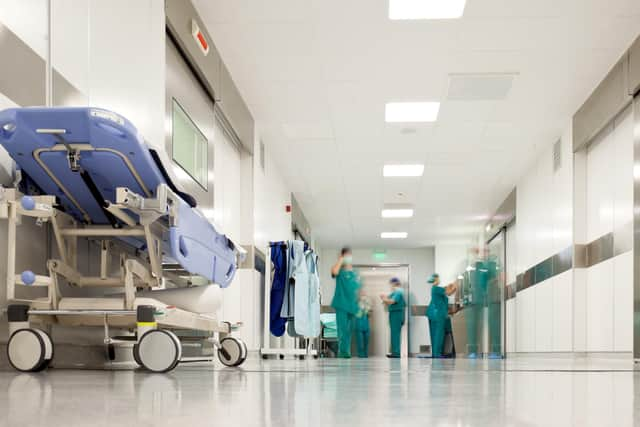North West hospitals including Preston, Chorley, Blackpool and Lancaster are dangerously busy with Wigan 100% full, it's been warned
and live on Freeview channel 276
Many hospitals are nearing breaking point, with two trusts in England running out of beds entirely last week, figures show. Nine in 10 acute hospitals had more than 85% of their beds filled in the week ending December 18. According to the Royal College of Emergency Medicine, hospitals are considered to be too busy if more than 85% of their available general and acute beds are occupied by patients. After this, patient care is thought to be compromised.
HOSPITALS ARE FULL
In the North West, every single hospital had occupation rates of more than 90 percent during the week from December 12 to 18. Lancashire Teaching Hospitals NHS Foundation Trust, which runs the Royal Preston and Chorley and South Ribble Hospitals, had an average of 836 beds open, with 830 occupied and 46 left, an occupancy rate of 94.7 per cent. Blackpool Teaching Hospitals NHS Foundation Trust, which runs the Blackpool Victoria Hospital, had an average 791 beds open, with 752 occupied and 39 available, an occupancy rate of 95.1 per cent. East Lancashire Hospitals NHS Trust had an average 729 beds open, with 701 filled and 29 available, an occupancy rate of 96.1 per cent. Wrightington, Wigan and Leigh NHS Foundation Trust had an average 382 beds available, all full, with a 100% occupancy rate.


CHRISTMAS PERIOD WILL BE ‘DARKEST TO DATE’
Advertisement
Hide AdAdvertisement
Hide AdNHS Providers, which represents hospital trusts, has warned this Christmas will be one of the “darkest to date” for the health system. Saffron Cordery, interim chief executive at NHS Providers, said a surge in flu cases had “impacted bed occupancy, which continues to be above levels considered safe”. More patients were also staying longer in hospital because of more severe illness and delayed discharges.
She said: "Trust leaders are expecting this Christmas to be one of their darkest to date. As they work hard to mitigate the impact of ongoing strike action, they are also having to contend with an incredibly long list of other serious challenges.” Professor Sir Stephen Powis, NHS national medical director, said: “The NHS has prepared for winter extensively with more beds, extra call handlers as well as the expansion of falls response services, control centres and respiratory hubs, but with flu hospitalisations and Covid cases on the rise, the best things you can do to protect yourself is to get vaccinated if you’re eligible.”
STRIKES ADDING TO EXISTING PRESSURE
Meanwhile, the public have been warned that the health service remains under extreme pressure in the run-up to Christmas, despite the highest level of alerts being stood down in some places. The majority of ambulance trusts in England were in so-called critical incident status this week. Many trusts said they were already under huge pressure before strikes by ambulance workers began on Wednesday. North West Ambulance Service said while strike action had finished, its 999 and 111 services "are still challenged". A spokesperson confirmed on Thursday that the critical incident had been stood down. In a tweet, the service urged people to "continue to help us by only calling 999 for life-threatening injuries/illnesses" and to contact 111 online or their GP or local pharmacy for help with non-urgent health concerns.